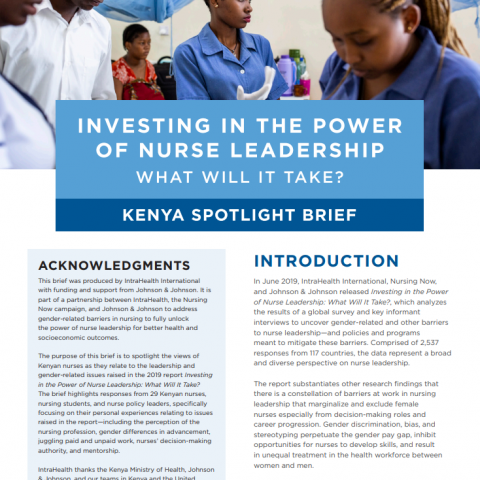Where We Work
See our interactive map

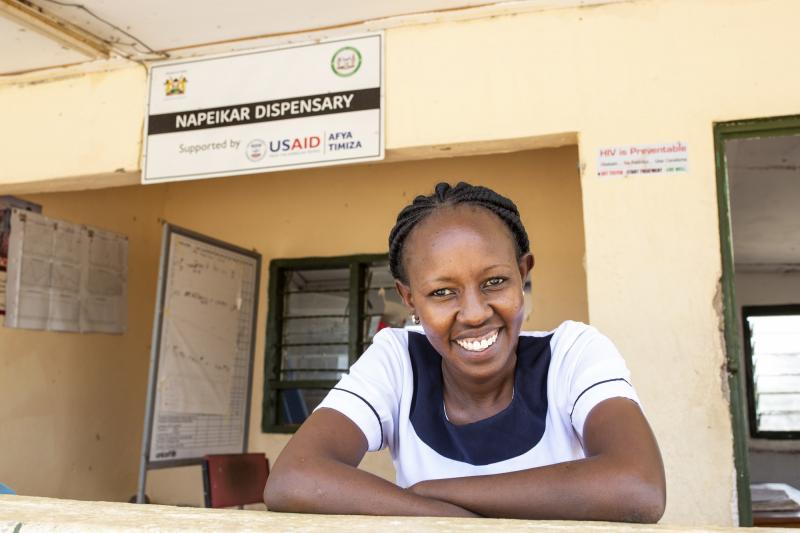
Teresia Wambui outside of Napeikar Dispensary in Turkana County, Kenya. There’s a shortage of nurses available to provide access to essential health services across Kenya, especially here in the arid lands in the north. Photo by Patrick Meinhardt for IntraHealth International.
Policymakers should recognize us nurses more and give us leadership at the county level.
Teresia is the nurse-in-charge at Napeikar Dispensary in Turkana County, Kenya. We first met her when she participated in a training conducted by our USAID-funded Human Resources for Health (HRH) Kenya Program on long-acting reversible family planning methods. Last February, we sat down to talk to her about her experiences as a young nurse in one of Kenya’s most remote areas, and what would help her advance her career.
This piece is part of our special content series, Nurse Leadership: In Their Own Words.
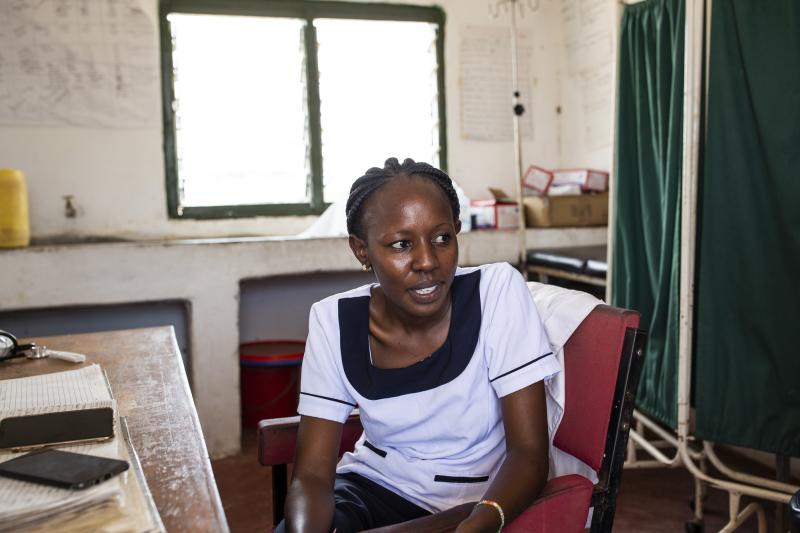
Several nurses in Kenya said they were impressed with nurses' demonstrated professionalism. Photo by Patrick Meinhardt for IntraHealth International.
I chose nursing because it was my passion. But I also just love the way they dress. They're smart.
I’ve been a nurse for six years and at this facility for five. My first job was in Turkana County, but in a different place working with an NGO.
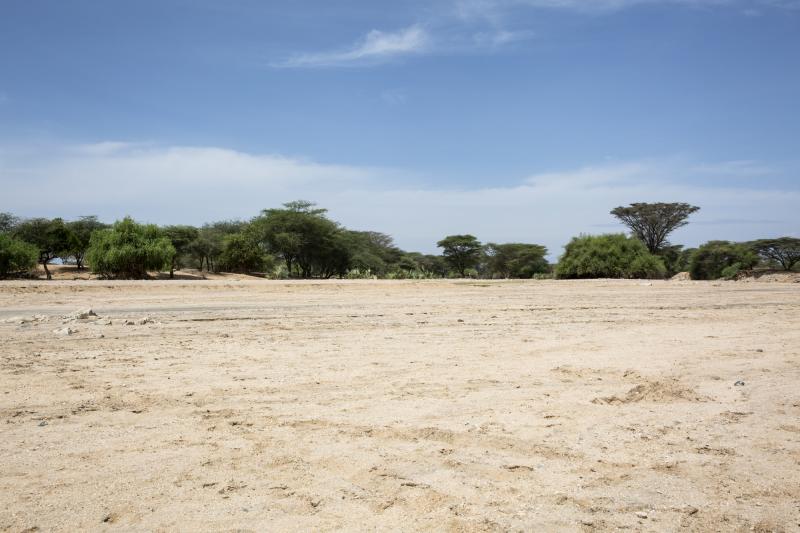
Life is tough in Turkana. The weather is harsh and the infrastructure is poor. Photo by Patrick Meinhardt for IntraHealth International.
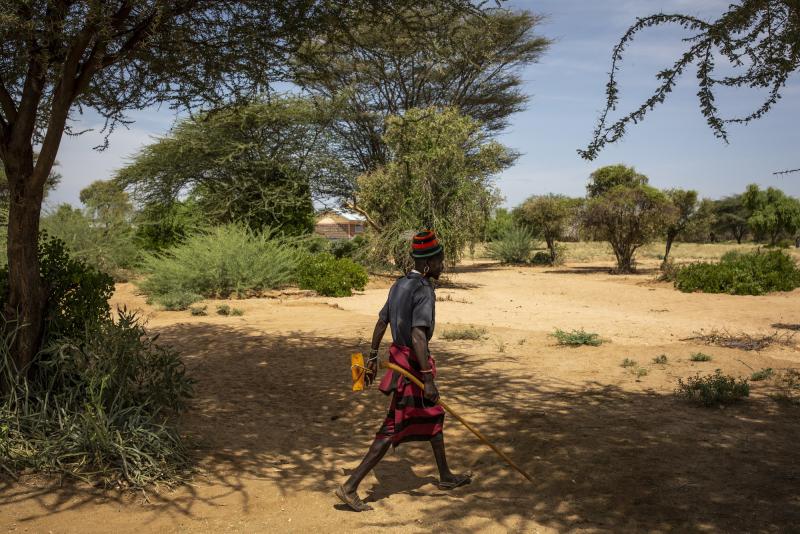
People have to walk 50 kilometers on average to access health services in Turkana. Photo by Patrick Meinhardt for IntraHealth International.
There are job opportunities here, so I traveled away from where I went to school. I grew up in a different place—Kiambu County—far away, past Nairobi. I have one kid, who’s four-years-old. They live with their dad in Naivasha. His relative helps. I only go home to visit every two months. It’s very hard.
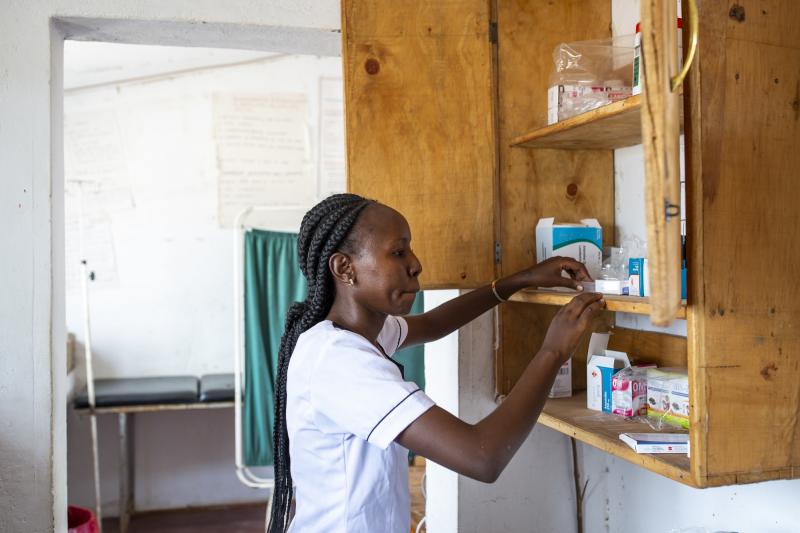
According to the Kenya Demographic and Health Survey, women in Turkana have an average of 6.9 children, and less than a third of all births are attended by skilled birth attendants. Photo by Patrick Meinhardt for IntraHealth International.
As the nurse-in-charge, I give immunizations for children one- to five-years-old, attend to pregnant women and mothers, conduct skilled deliveries, and provide general nursing care. I also manage the budget, I order and receive the drugs, and supervise a community health worker, a nutritionist, a patient attendant, and casuals like cleaners.
Challenges that I have? The shortage of staff. I'm just one nurse and we have a catchment area of 6,867. I think the workload is going up. More patients are coming for the services here. And we only have one ambulance in the whole county.
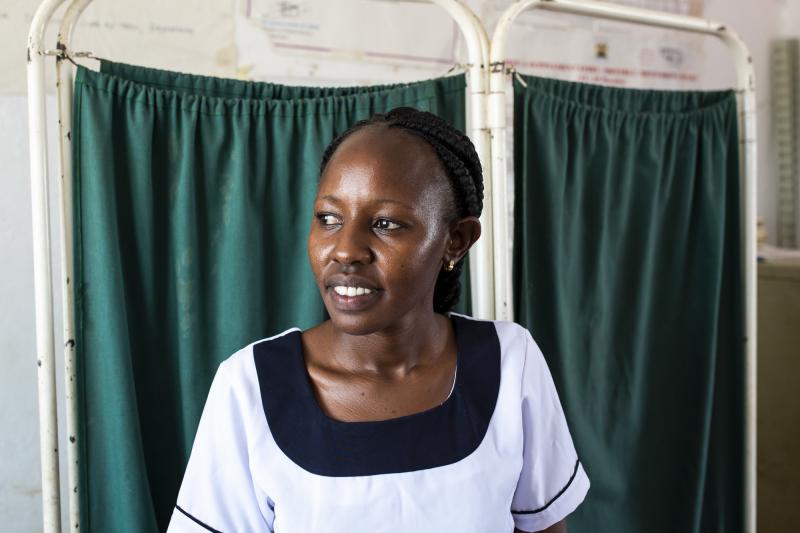
Several nurses in Kenya told IntraHealth they were encouraged to continue in nursing by more senior nurses who served as mentors. Photo by Patrick Meinhardt for IntraHealth International.
I think what has helped me so much was having a mentor. She’s called Linda. She was a nurse when I was a student. And I loved how she did her work. She was good, and she was dedicated to her work. She always mentored me. Like, “This is how things are done.”
I think I've also been a mentor. We have patient attendants from the community. I train them how to do things, how to treat patients, how to give medications, and how to give injections.
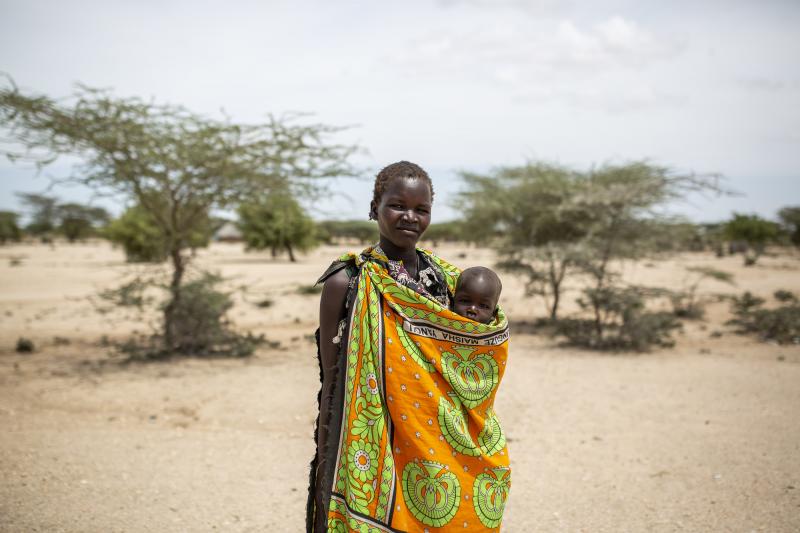
Susan Ejen walks her child, Felicia Adpal, to Napeikar Dispensary. Photo by Patrick Meinhardt for IntraHealth International.
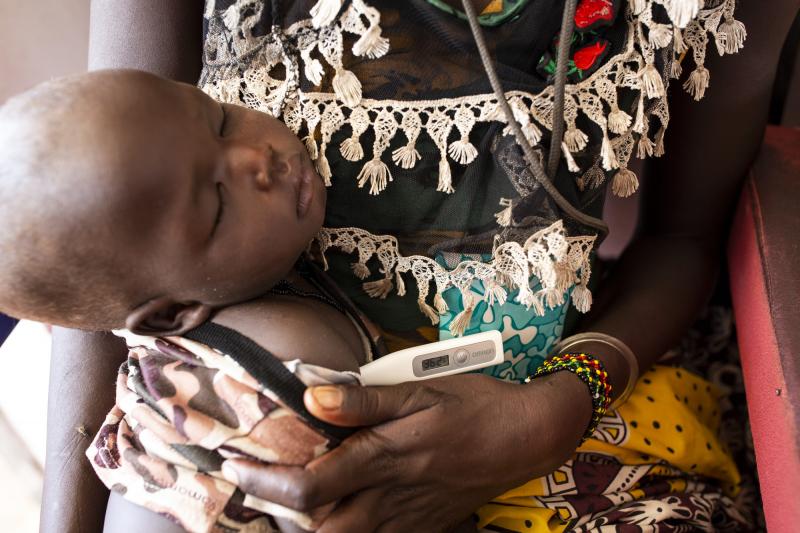
Teresia takes Felicia's temperature. Photo by Patrick Meinhardt for IntraHealth International.
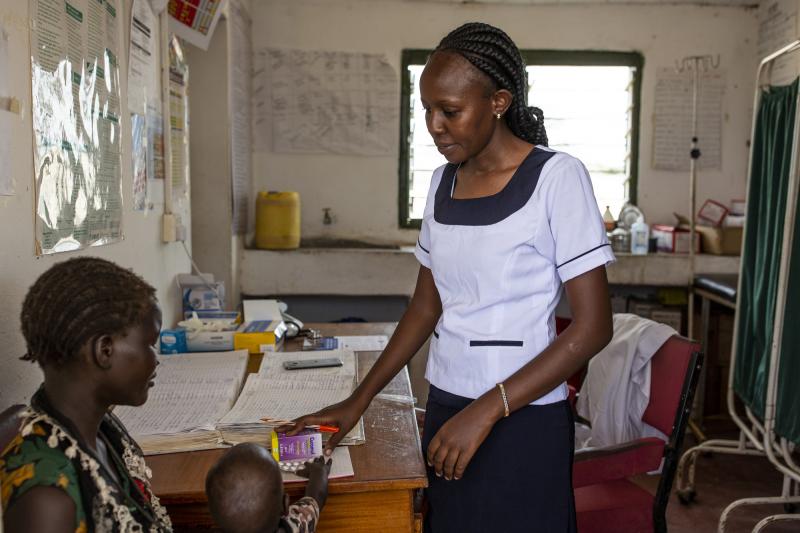
Teresia gives Susan malaria medication for Felicia. Photo by Patrick Meinhardt for IntraHealth International.
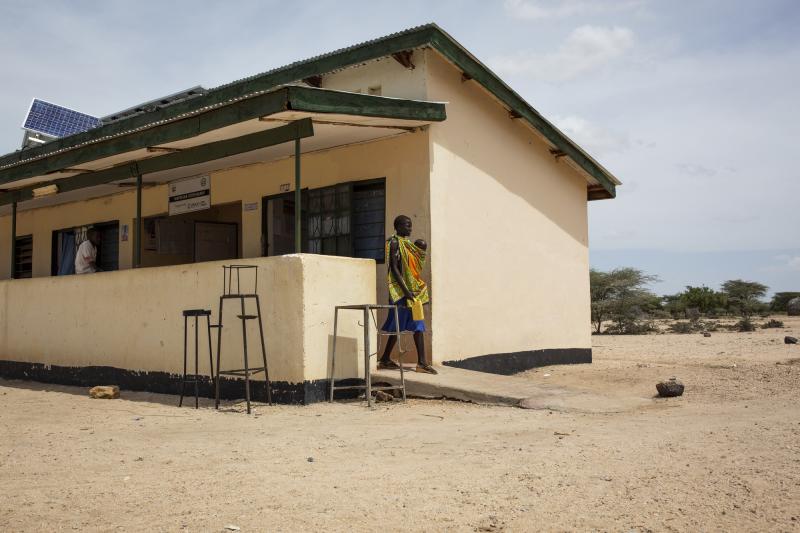
Susan and Felicia head back home. Photo by Patrick Meinhardt for IntraHealth International.
In this climate, we have so many cases of severe malaria. Kids are brought convulsing, with high fever, with severe malaria. But we give them the drugs, and we help these kids. Because when there’s a malaria outbreak, we can manage even fifty patients. But not today, we are managing only five. So, the cases are going down.
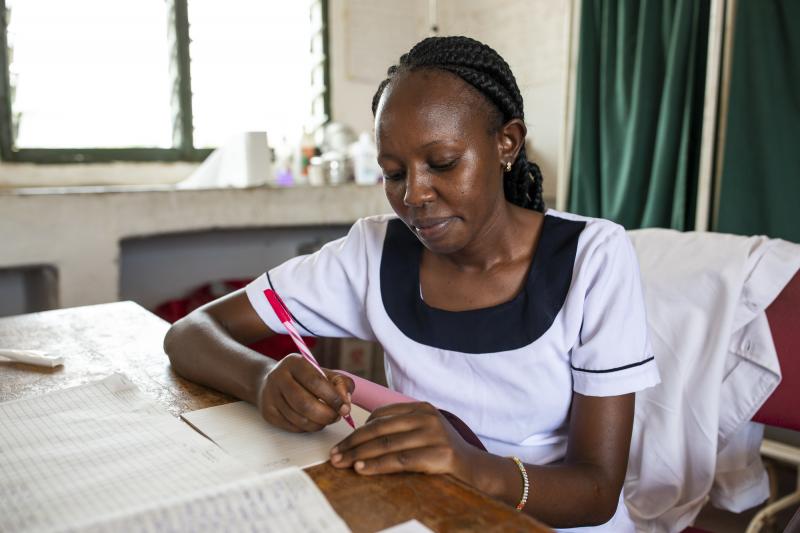
Teresia remembers a mother she helped deliver safely. Photo by Patrick Meinhardt for IntraHealth International.
I had this mother who came to deliver in this facility. She was pregnant with twins, and had already had two previous cesareans. She had started dilating, and I knew it was very risky for her to deliver in a dispensary. I called for the ambulance, and the mother was taken to a county hospital, and she delivered safely through a caesarian section. She brought the children for immunization here. And they are big. They are almost two years old now.
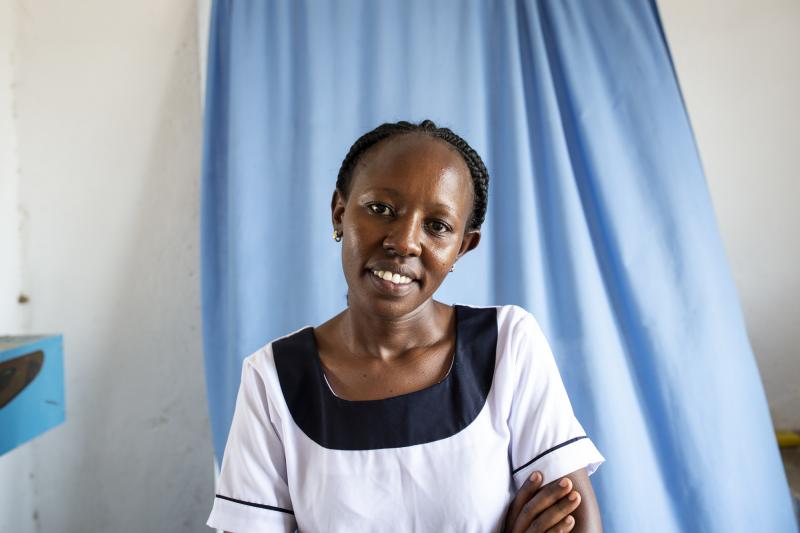
Nurses in Kenya say understaffing is a major barrier to becoming leaders. When facilities are short-staffed, nurses burn out and and struggle to move up the career ladder. Photo by Patrick Meinhardt for IntraHealth International.
Policymakers should recognize us more. I think we're doing a good job. They should add more staffs to the facility. More nurses, that is.
And give us leadership at the county level--a nursing directorate--so that maybe they can hear our cries. Yeah, you have to have someone to go to, to tell them what you're going through, maybe at the dispensary.
READ what nurses in Kenya say about leadership and gender-related issues in Investing in the Power of Nurse Leadership: Kenya Spotlight Brief.
Carol Bales and Samantha Rick interviewed Teresia Wambui just before the COVID-19 pandemic lock down. Carol Bales edited Teresia's interview for clarity and length. All photos by Patrick Meinhardt for IntraHealth International. All work related to this post and the Kenya brief was funded by a grant from Johnson & Johnson Foundation.
Get the latest updates from the blog and eNews
Read what nurses in Kenya say about nursing leadership in Investing in the Power of Nurse Leadership: Kenya Spotlight Brief. Twenty-nine nurses, nursing students, and nurse policy leaders shared their personal experiences including gender differences in advancement, juggling paid and unpaid work, decision-making authority, and mentorship.
